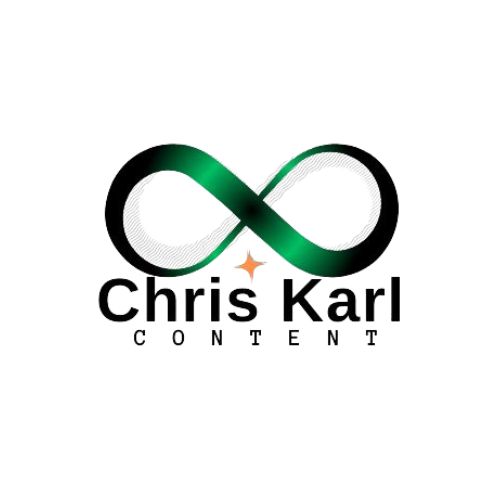Starting a blog as a small business owner might feel like another massive task on your endless to-do list. But here’s the twist: blogging can be your secret weapon to stand out online, boost your site’s rankings, and attract the right customers.
You’re not just running a business; you’re also your own biggest marketer, and every post you publish is a chance to show the world what you’ve got.
You’ve probably heard the usual advice about blogging, but what about those lesser-known tips that can really turn the dial? They’re the things that can push your blog from being just another page on the internet to a fresh and exciting element in your marketing strategy.
So, let’s cut to the chase and dive into some unique blogging tips for small business owners. Ready to make your blog work as hard as you do?
1. Optimize for Voice Search

As far as blogging tips for small business owners, voice search is quickly becoming a staple in how consumers find what they need — especially for local businesses like yours.
According to reports from G2:
- 76% of voice searches focus on finding local items or services.
- Voice searches are three times more likely to be local compared to text searches.
- 82% of smartphone users use search engines to find local shops, and 58% of these folks use voice to make these discoveries.
So, how do you get your business to stand out in voice searches? Start by embedding question-based keywords into your website content—think of common questions your customers might ask and include these naturally in your text. Adding a FAQ section can directly answer these common queries, making it a perfect fit for voice search users.
Use schema markup to help search engines better understand and display your content. Since many voice searches are local, focusing on local SEO by incorporating community-specific keywords can do wonders for your local presence.
2. Collaborate on Content

Collaboration can supercharge your blog’s reach and credibility. Start by featuring interviews with peers in your industry to provide fresh, expert insights. You could also invite industry experts to curate content collections on your blog, adding variety and authority.
Guest blogging is another powerful strategy. According to Ahrefs, 56.4% of pages gain at least one backlink from guest posts. Consider partnering with other businesses to promote content mutually; this can expand your audience through shared networks.
Consider compiling expert opinions on trending topics. This will boost your content’s relevance and appeal and position your blog as a go-to resource in your industry.
You Might Also Like: How Small Business Bloggers Drive Organic Traffic to Your Brand
3. Capitalize On Content Decay

Don’t let your older blog posts gather dust. Use analytics to identify which posts are losing traffic over time. Refreshing these posts with new data and insights can breathe new life into them. Orbit Media reports that 73% of bloggers who update their posts are nearly three times more likely to see improved results.
Treat the updated content as if it were new—share it across your social media platforms and with your email subscribers. Clean up your site by removing outdated or irrelevant content. Keeping your content current and relevant will improve your site’s health and enhance user experience.
4. Syndicate Your Content

Expanding your blog’s reach can be as simple as syndicating your content. Platforms like Medium or LinkedIn are ideal for republishing your posts. This strategy avoids SEO penalties for duplicate content while extending your digital footprint.
According to Datamatics Business Solutions, 87% of B2B marketers include content syndication in their strategies, and 80% view it as their top lead-generation tactic. Syndicating your content amplifies your message and introduces your brand to a broader audience.
Don’t forget to track the performance of your syndicated content compared to your original postings. This data can guide your future content strategies.
Ready to Blog Your Brand?
Businesses with blogs generate 67% more qualified leads.
5. Use Advanced Analytics

To truly understand what’s working on your blog, peek behind the curtain with advanced analytics. Tools like Hotjar offer heat maps showing where users click and how far they scroll, providing invaluable insights into user engagement.
You can go even deeper by analyzing visitors’ paths on your site. This can help you optimize navigation and improve the overall user experience. Also, consider tracking different demographics to see how various groups interact with your content—this can better guide your content creation to target specific audiences.
Identify which blog posts frequently lead to conversions. Understanding these patterns can help you replicate successful elements in future posts.
6. Strategic Content Diversification

Cater to different preferences by offering text, video, infographic, and podcast content. Podcasts and other audio content are now a strategic choice for 25% of marketers, reflecting their growing popularity.
Consider creating a series that allows deeper dives into topics over several posts. These blogging tips for small business owners can keep audiences engaged and coming back for more. Interactive elements like quizzes, surveys, and infographics should also be incorporated to increase user interaction and engagement.
Tailor your content for specific audience segments to boost its relevance and impact. You can increase engagement and conversion rates by addressing the specific needs and interests of different groups.
7. Tap Into Psychological Triggers

Psychological triggers can significantly influence how customers interact with your content and make purchasing decisions. Use time-sensitive offers to create a sense of urgency and encourage quicker responses. This strategy can more effectively convert casual visitors into committed customers.
Customer testimonials and expert endorsements are incredibly powerful, as 87% of consumers would not consider a business with less than a 3-star rating, and 66% say positive reviews are crucial when making a purchase. Leverage this by displaying positive feedback and endorsements on your blog and marketing materials.
Additionally, offer free, valuable content to build loyalty and drive sales. This can establish your authority and create a lasting relationship with your audience.
Connect emotionally with your readers by sharing stories they can relate to. According to Fractl, campaigns with over 100 placements were three times more likely to feature a strong emotional hook. Moreover, campaigns with more than 20,000 social shares were eight times more likely to include a strong emotional hook than those with fewer than 1,000 shares.
You Might Also Like: How To Turn Customer Questions Into High-Converting Content Assets
8. Create Seasonal and Trend-Based Content

Regarding blogging tips for small business owners, staying relevant means tapping into the here and now. Incorporate seasonal trends and keywords into your blog to attract timely traffic. Whether it’s summer sales, back-to-school tips, or holiday gift guides, aligning your content with the season can significantly increase your visibility and relevance.
Also, consider creating content that ties into upcoming holidays or notable events. This strategy keeps your content calendar full and ensures your posts are timely and engaging for your audience.
Use tools like Google Trends to stay ahead of the curve. Predicting and capitalizing on upcoming interests allows you to develop content that resonates with what’s currently capturing public attention. Be prepared to quickly capitalize on sudden trends to keep your content fresh and exciting.
9. Strategically Repurpose Your Posts

Maximizing the value of your content is key to a sustainable content strategy. Consider transforming your blog posts into other formats, such as eBooks, guides, or webinars. This extends the life of your original content and caters to different audience preferences.
From your longer pieces, create bite-sized social media posts. You can capture quick attention and drive traffic back to your main site. Similarly, you can use the research and data from your posts to create infographics or video summaries. These are great for visual learners and can help boost shares and engagement.
Remember to refresh and relaunch your most successful old posts. Updating content with current information and new insights can breathe new life into your top-performing articles. According to SEMrush’s State of Content Marketing Report 2023, 42% of marketers find that updating and repurposing content is a key to successful marketing campaigns.
10. Use Backend SEO Techniques

Optimizing the technical aspects of your blog can significantly boost your SEO and enhance user experience. Start by increasing your page loading speed. A faster site keeps users engaged and reduces bounce rates, which can help improve your search engine rankings.
Make sure your blog is fully responsive and mobile-friendly. By the end of 2021, mobile devices accounted for 54.4% of all internet traffic, so a mobile-optimized site is essential for reaching the widest audience possible.
Security is another critical factor. Secure your site with HTTPS to boost your Google rankings and increase user trust. Users are more likely to stay on and return to a website they know is safe.
Take a strategic approach to internal linking. This will help distribute page authority across your site and keep users engaged longer by making it easy for them to find related content.
Final Thoughts
You now have a toolbox brimming with obscure blogging tips for small business owners. They can enhance your blog’s content, expand its reach, engage your audience more deeply, and optimize its performance from all angles. From tapping into psychological triggers to mastering backend SEO, each tip is designed to give your blog a competitive edge.
Remember, the key to successful blogging is consistency and innovation. Keep applying these tactics, experimenting with new ideas, and refining what works best for your audience. Whether repurposing old content, diving into analytics, or optimizing for voice search, every step you take is a step toward a more influential blog.

Start Blogging Your Brand.
If you’re ready to forge a connection with your neighborhood, I got you.

Chris Karl
Content Strategist, Writer, & Editor
Chris is a seasoned content strategist, writer, and editor dedicated to eliminating bland and boring content from the internet one word at a time. His extensive experience has led to working with top-tier digital platforms like Monkeybox Media, WordAgents, Screen Rant, Wealth of Geeks, and MSN.

